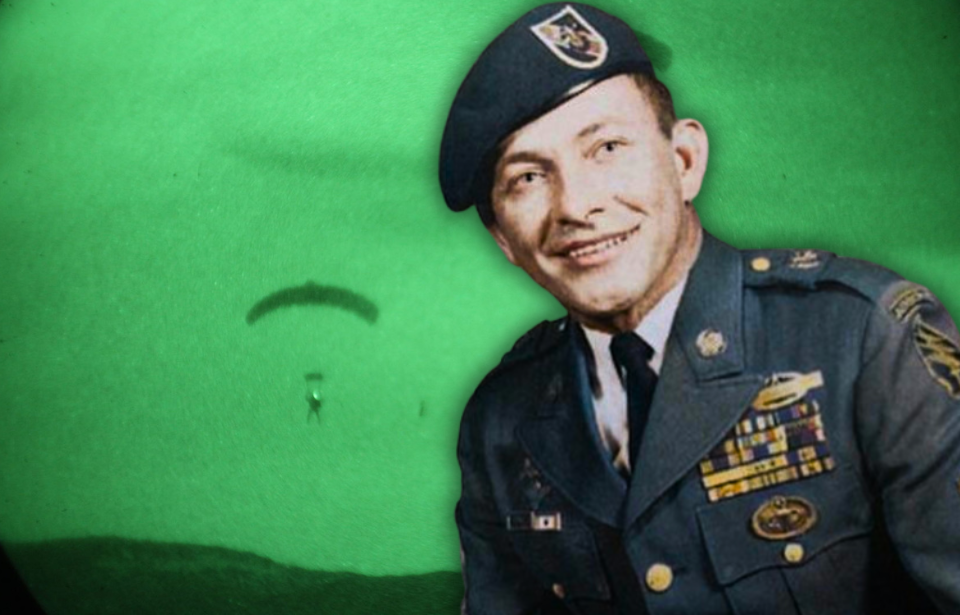Billy Waugh’s life in service stands as a testament to endurance, courage, and relentless commitment. Throughout his remarkable career, he accumulated an extraordinary list of honors—the Silver Star, several Bronze Stars and Army Commendation Medals, and an unmatched eight Purple Hearts. Yet Waugh’s legacy cannot be measured by decorations alone. What truly set him apart was his unyielding drive to remain in the fight; long after most soldiers had retired, he returned to the field to take on perilous missions once more. His story proves that true valor and determination transcend age and expectation.
Billy Waugh enlisted too late to serve in World War II
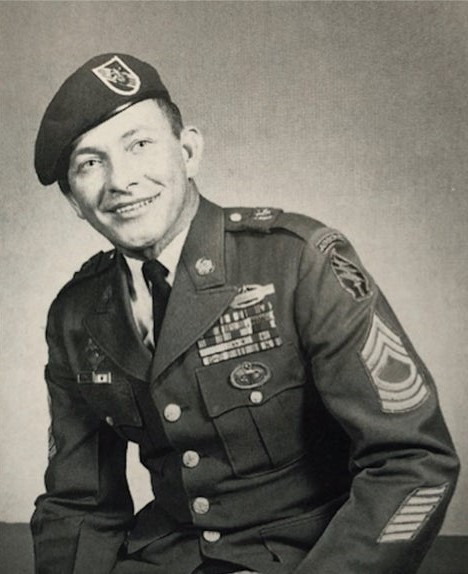
Billy Waugh’s commitment to serving his country began long before he ever donned a uniform. At just 15 years old, a chance meeting with two Marines ignited a passion for military service that he couldn’t ignore. Too young to enlist in Texas, he convinced himself that California might overlook his age and began hitchhiking west toward Los Angeles. The journey ended in New Mexico when a police officer detained him for traveling without identification and refusing to give his name. Once authorities confirmed he could afford a bus ticket, they sent him back home.
Rather than dampening his ambition, the setback only deepened his determination. Returning to Texas, Waugh poured his energy into his studies, channeling the focus and discipline that would later define his military career. His dedication paid off—he graduated with a flawless 4.0 GPA, a fitting preview of the tenacity that would one day make him one of America’s most accomplished and resilient warriors.
Becoming a Green Beret following the Korean War
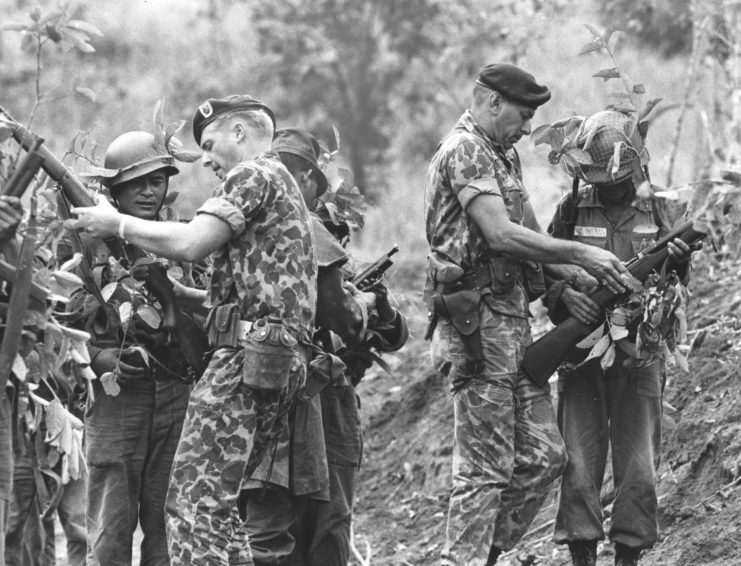
Billy Waugh started his military career in 1948 when he decided to join the U.S. Army instead of the Marine Corps. At first, he was assigned to the 82nd Airborne at Fort Bragg, North Carolina. But in 1951, he re-enlisted with the 187th Airborne Regimental Combat Team (previously known as the 187th Infantry Regiment) and was sent to Korea.
After serving in the Korean War, Waugh learned that the US Special Forces were looking for platoon sergeants. By 1954, he had earned his Green Beret and joined the 10th Special Forces Group in West Germany. His first mission came in 1961 when he was deployed to South Vietnam and Laos to train local tribesmen in combat skills.
Billy Waugh survived a brutal wound to the head
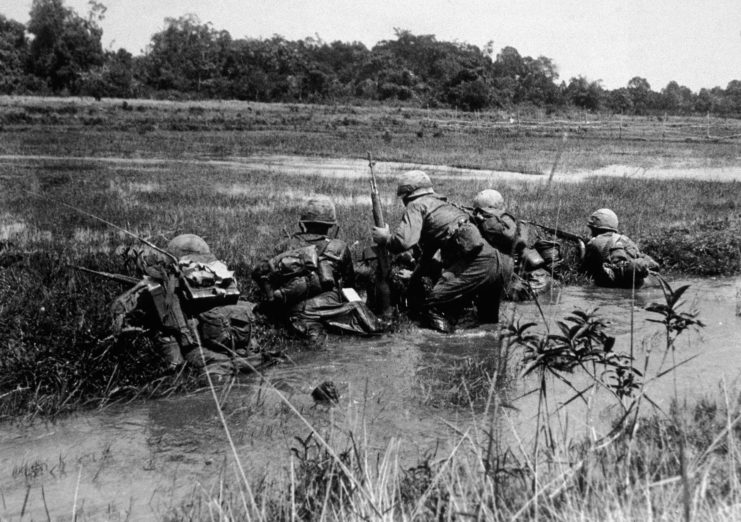
In 1965, Billy Waugh began his first tour with the CIA’s Special Activities Division and sent to the frontlines in Vietnam. While there, intelligence informed his team that there were only a few hundred North Vietnamese Army (NVA) troops in the unit they were supposed to raid in Bồng Sơn, Bình Định province. Unfortunately, this estimate was severely miscalculated, as there were actually more than 4,000 troops, including Chinese regulars.
During the raid, ammunition began to run low and Waugh found himself without any more grenades. He was struck in the knee by a Soviet-made RPK and had to crawl to cover. While trying to move, he was hit in the ankle and foot, before suffering his worst injury.
During the engagement, the Green Beret was shot in the head and knocked unconscious. “I took another bullet, this time across the right side of my forehead,” he recalled in his book, Hunting the Jackal: A Special Forces and CIA Soldier’s Fifty Years on the Frontlines of the War Against Terror. “I don’t know for sure, but I believe the bullet ricocheted off the bamboo before striking me. It sliced in and out of a two-inch section of my forehead, and it immediately started to bleed like an open faucet.”
The North Vietnamese troops believed Waugh was dead, stripped him of his clothing and Rolex watch, and left him on the ground with all of the raid’s other casualties. He was later picked up by a rescue team.
The first high-altitude low-opening (HALO) jump
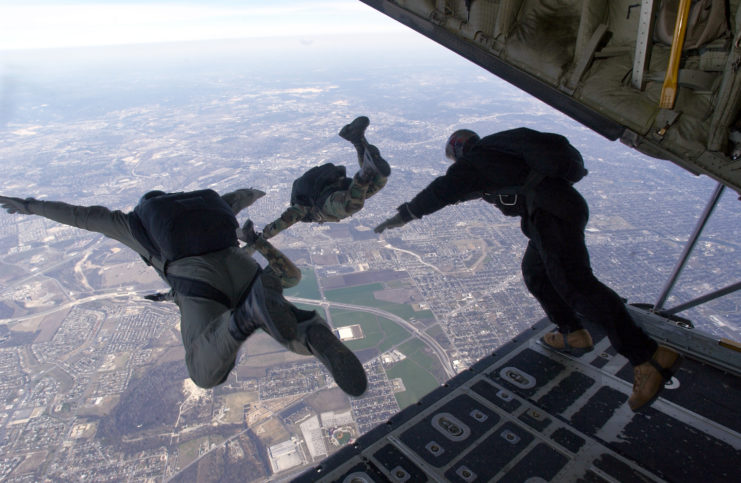
After spending several months in the hospital, Billy Waugh returned to Vietnam, joining the Military Assistance Command – Vietnam Studies and Observations Group (MACV-SOG). He became a sergeant major and participated in the planning and execution of operations throughout the rest of the war.
While with MACV-SOG, Waugh participated in the first combat high-altitude low-opening (HALO) jump. He participated in several of the dangerous jumps, including the final one in Vietnam.
Billy Waugh was an “unofficial” spy for the CIA
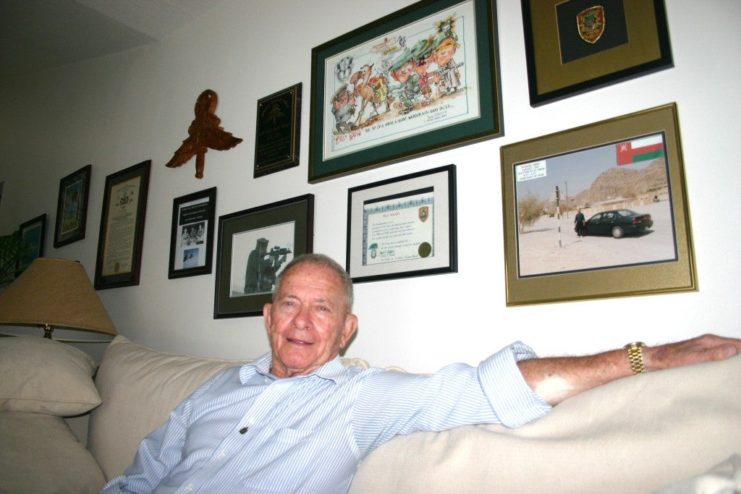
After retiring from the Army in 1972, Billy Waugh briefly worked as a postal employee, but the routine of civilian life didn’t suit him. In 1977, he was approached with an opportunity to train the Libyan Special Forces—a project initially presented as a private venture led by former CIA operative Edwin Wilson, not an official government mission.
Unaware of the full context behind the operation, Waugh accepted the role and headed to Libya. However, he had already established a backchannel with the CIA, agreeing to secretly supply them with intelligence. While on the ground, he captured photographs of military trainees and surface-to-air missile (SAM) sites, quietly providing the agency with valuable information and effectively acting as an unofficial asset inside Libya.
Tracked Osama bin Laden at 71 years old
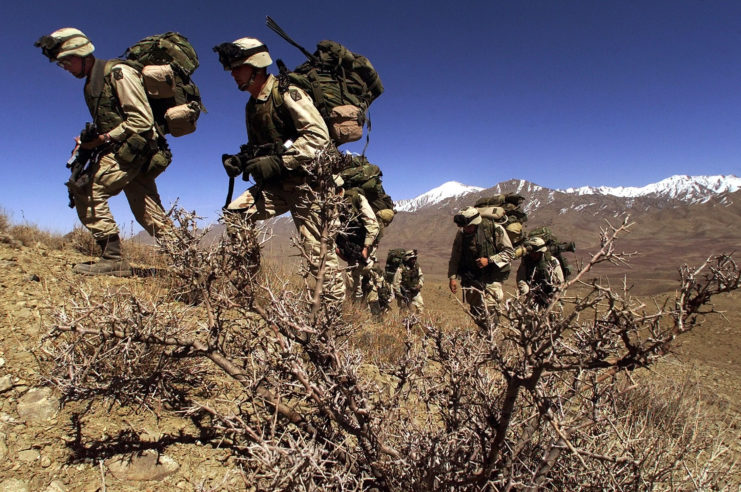
Billy Waugh became an excellent asset for the CIA. After years of evading surveillance, he and his team were the ones to track down Carlos the Jackal (real name Ilich Ramírez Sánchez), a terrorist working with the KGB and Stasi. He was captured in 1994 and sentenced to three life terms in prison.
Waugh also used his surveillance to track Osama bin Laden following the terrorist attacks on September 11, 2001. At the age of 71, he joined the Northern Alliance Liaison Team, working with Afghanis who actively resisted the Taliban during Operation Enduring Freedom. He later revealed that he was close enough to taking out bin Laden on several occasions, saying, “I was within 30 meters of him. I could have killed him with a rock.”
Billy Waugh’s life following his service
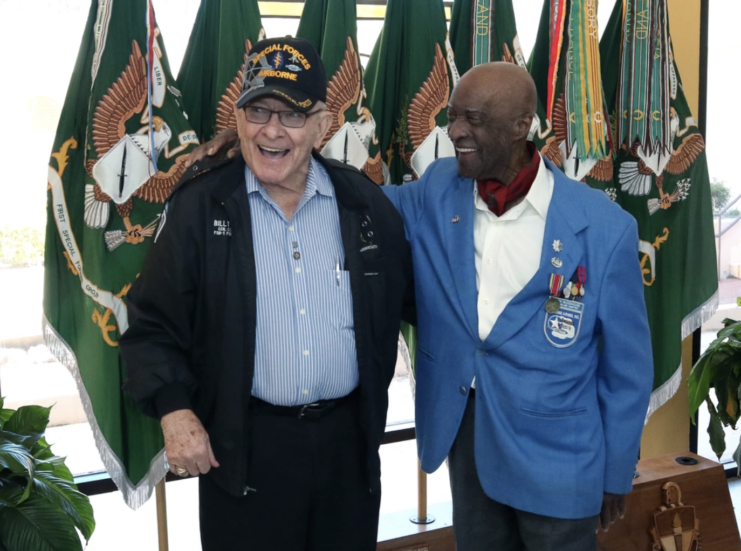
Billy Waugh had gotten used to the fast-paced lifestyle while serving and to this day struggles to stay away from his former life in the military. “If the mind is good and the body is able, you keep on going if you enjoy it,” he said in an interview with Macdill Air Force Base, Florida, adding that “once you get used to that [life of adventure], you’re not about to quit it. How could you want to do anything else?”
More from us: Hugh Thompson Jr. Saved Innocent Civilians During the Mỹ Lai Massacre – He Was Deemed a Traitor
Well into his years as a senior, Waugh still jumped out of aircraft and even listed himself as a “contractor for my present outfit.” On April 4, 2023, the famed Green Beret and CIA operative passed away at the age of 93, having lived one of the most action-packed careers of any US Army service member.
